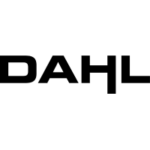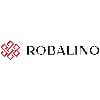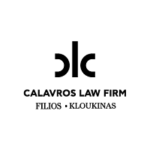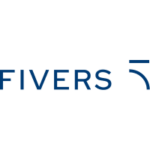-
What legislation applies to arbitration in your country? Are there any mandatory laws?
The German arbitration framework is codified in Book 10 of the German Code of Civil Procedure (Zivilprozessordnung, ZPO), covering Sections 1025 to 1066 (also designated as German Arbitration Law).
While the parties enjoy broad autonomy in shaping the arbitral process, certain provisions are mandatory and cannot be waived or altered by agreement. These rules safeguard the fundamental principles of arbitration. Key examples include:
- Formal requirements for the arbitration agreement (Section 1031 ZPO);
- The obligation to ensure equal treatment of the parties and their right to be heard, as well as the prohibition on excluding legal counsel as party representatives (Sections 1042(1) and (2) ZPO); and
- The rule that a party’s right to seek annulment of an award (Section 1059 ZPO) cannot be entirely excluded or waived in advance of the proceedings. A waiver of specific grounds for setting aside is permissible only after the award has been rendered, and even then, the two grounds listed in Section 1059(2) No. 2 remain non-waivable as they serve the public interest.
-
Is your country a signatory to the New York Convention? Are there any reservations to the general obligations of the Convention?
Germany is a party to the New York Convention and has implemented its provisions in full, without invoking any of the reservations permitted under Article I(3), such as the commercial or reciprocity reservations. Under Section 1061(1) ZPO, the recognition and enforcement of foreign arbitral awards in Germany are governed directly by the Convention.
-
What other arbitration-related treaties and conventions is your country a party to?
Germany is a party to the European Convention on International Commercial Arbitration (ECICA), a regional treaty intended to facilitate arbitral procedures among European states. Its principal function is to supplement the New York Convention, although its practical significance is limited due to its narrow scope. The ECICA applies only in specific circumstances, such as when all parties to the arbitration agreement are domiciled in contracting states and both the seat of arbitration and the enforcement forum are ECICA members.
Germany was also among the early supporters of the Convention on the Settlement of Investment Disputes between States and Nationals of Other States (ICSID Convention), which it ratified on 18 April 1969. Awards rendered under the ICSID framework benefit from a distinct and comprehensive enforcement regime under the German Law on the Convention of 18 March 1965 on the Settlement of Investment Disputes (InvStreitÜbkG). Article 2(4) of the InvStreitÜbkG provides that an application for a declaration of enforceability of an ICSID award may only be refused if the award has been annulled pursuant to Articles 51 or 52 of the ICSID Convention.
Germany has also signed the UNCITRAL Convention on Transparency in Treaty-based Investor-State Arbitration (Mauritius Convention) on 17 March 2015, which seeks to enhance transparency in investment arbitrations under legacy bilateral investment treaties (BITs). Ratification at the EU level remains pending (see also Section 7.2 on Confidentiality and Transparency).
On 5 May 2020, Germany joined 22 other EU member states in signing the Agreement for the Termination of Bilateral Investment Treaties between Member States of the EU, which entered into force on 29 August 2020 (see also Section 1.1 on National Position).
Germany is also a contracting party to the Energy Charter Treaty (ECT), although it formally withdrew on 20 December 2023. Due to the ECT’s sunset clause, its provisions will continue to apply to existing investments until 2043.
Finally, Germany remains a party to the 1899 and 1907 Hague Conventions for the Pacific Settlement of International Disputes, which established the Permanent Court of Arbitration.
-
Is the law governing international arbitration in your country based on the UNCITRAL Model Law? Are there significant differences between the two? Are there any impending plans to reform the arbitration laws in your country?
German Arbitration Law is contained in Sections 1025 to 1066 of the German Code of Civil Procedure (ZPO). It is largely modelled on the UNCITRAL Model Law (1985 version), but there are several notable divergences. Key examples include:
- The scope of application: German Arbitration Law applies to both domestic and international arbitrations, whether commercial or otherwise, provided the seat of arbitration is in Germany (Section 1025(1) ZPO). By contrast, the UNCITRAL Model Law is confined to international arbitration (Article 1).
- The early determination of admissibility: Section 1032(2) ZPO allows parties to request a German court to rule on the admissibility of arbitration before the arbitral tribunal is constituted. This mechanism enables an early judicial determination of jurisdictional issues, a feature absent from the UNCITRAL Model Law. The purpose is to determine whether the arbitration agreement is e.g. null and void, inoperable or incapable of being performed.
- Interim measures by arbitral tribunals: Under Section 1041 ZPO, arbitral tribunals seated in Germany may grant interim relief, mirroring Article 17 of the UNCITRAL Model Law. However, the 2006 amendments to the Model Law go further by elaborating on interim measures and introducing provisions on preliminary orders (Articles 17–17J), which are not fully reflected in German law.
- Arbitration defence in court proceedings: Similar to Article 8(1) of the UNCITRAL Model Law, Section 1032(1) ZPO permits a party to invoke an arbitration agreement as a defence when court proceedings are initiated. However, the German provision requires the court to declare the action inadmissible, whereas the Model Law provides for courts to refer the parties to arbitration. Also, German courts conduct a full review of the validity and scope of the arbitration agreement, rather than a prima facie assessment.
- Judicial assistance: Section 1050 ZPO, inspired by Article 27 of the UNCITRAL Model Law, empowers German courts to assist arbitral tribunals not only in taking evidence but also in performing other judicial acts requiring coercive powers. Notably, this assistance is available even when the arbitration is seated outside Germany, whereas the Model Law limits such support to arbitrations seated within the jurisdiction. Furthermore, Section 1050, sentence 3 ZPO, without a counterpart in the Model Law, expressly grants arbitrators the right to participate and pose questions in evidentiary proceedings before state courts.
On 26 June 2024, the German Federal Ministry of Justice introduced a Draft Bill aimed at modernising the national arbitration framework, hence Book 10 of the German Code of Civil Procedure, and aligning it more closely with international standards. The proposal was progressing through the legislative process but was interrupted by the dissolution of parliament following early elections in February 2025. Currently, it is not clear when the bill will be enacted. If revived and adopted, the reform would introduce several significant innovations, including:
- enabling the submission of documents in English and opening up the possibility to carry out proceedings before commercial courts in arbitration-related matters fully in English;
- clarifying the enforceability of interim measures issued by foreign arbitral tribunals, including grounds for refusal;
- permitting arbitral tribunals to publish anonymised awards with party consent;
- enabling arbitral awards to be issued in electronic form;
- allowing dissenting and separate opinions to be included in awards;
- introducing a new remedy for setting aside awards on criminal law grounds, inspired by the restitution and retrial mechanism in state-court litigation; and
- providing a mechanism for the appointment of co-arbitrators in multiparty arbitrations.
-
What arbitral institutions (if any) exist in your country? When were their rules last amended? Are any amendments being considered?
In Germany, the most frequently used arbitral institutions for international disputes are the German Arbitration Institute (DIS) and the International Chamber of Commerce (ICC). The DIS enjoys a strong reputation for neutrality, efficiency, and its modern arbitration rules, last revised in 2018 to reflect international best practice.
In addition to these, German parties regularly resort to other leading institutions, such as the Swiss Arbitration Centre, the Vienna International Arbitral Centre (VIAC), and, in the context of investment arbitration, the International Centre for Settlement of Investment Disputes (ICSID).
-
Is there a specialist arbitration court in your country?
Section 1062 ZPO allocates jurisdiction over arbitration-related matters to the higher regional courts (Oberlandesgerichte). These courts are competent to decide on issues such as:
- the appointment (Sections 1034 and 1035 ZPO), challenge (Section 1037 ZPO), or removal of arbitrators (Section 1038 ZPO);
- the determination of the admissibility of an arbitration (Section 1032(2) ZPO) and objections to the arbitral tribunal’s jurisdiction (Section 1040(3) ZPO);
- the enforcement, setting aside and amendment of interim measures (Section 1041 ZPO); and
- the recognition and enforcement (Section 1060 ZPO et seq), or annulment (Section 1059 ZPO) of arbitral awards.
Where the seat of arbitration is in Germany, jurisdiction lies with the higher regional court designated in the arbitration agreement or, failing such designation, the court in whose district the seat is located.
Pursuant to Section 1062(2) ZPO, where the seat is not in Germany, the higher regional court in whose district the respondent has its registered office or habitual residence or where the respondent’s assets or the object claimed in the arbitration proceedings or affected by the measure are located shall have jurisdiction under Section 1032(1) nos. 2 (first alternative), 3, 4, subsidiarily the higher regional court of Berlin.
-
What are the validity requirements for an arbitration agreement under the laws of your country?
Under Section 1029(1) ZPO, a valid arbitration agreement must:
- demonstrate the parties’ intention to submit existing or future disputes arising from a defined legal relationship—whether contractual or otherwise—to arbitration. In practice, this typically entails an express exclusion of state court jurisdiction; and
- satisfy the requirements of objective arbitrability (Section 1030 ZPO) and formal validity (Section 1031 ZPO).
An agreement that does not meet these conditions is ineffective unless the defect is remedied under Section 1031(6) ZPO, or the deficiency is immaterial. Furthermore, if the parties proceed with arbitration without objecting to the defect, it is deemed to be cured (Sections 1027 and 1040(2) ZPO).
The arbitration agreement must be in writing, either signed by the parties or evidenced through written communications (including email) that record the agreement. It is not necessary to specify procedural details such as the seat of arbitration, the number of arbitrators, the applicable arbitration rules, or the language of the proceedings. Nevertheless, addressing these elements in advance is advisable to avoid uncertainty.
Where a contract incorporates by reference a separate document containing an arbitration clause, that clause becomes part of the contract unless the reference is expressly and timely objected to.
Under German Arbitration Law, disputes involving a financial or commercial interest are generally arbitrable. This includes claims for monetary relief as well as disputes relating to competition law or intellectual property rights. The concept of economic interest is interpreted broadly. Even matters without a direct financial component may be arbitrable if the parties are legally permitted to settle the dispute (Section 1030(1) ZPO).
However, statutory exceptions exist. For example, disputes concerning the existence of residential leases within Germany are excluded from arbitration (Section 1030(2) ZPO).
The arbitrability of patent-related issues, particularly in licensing contexts, has been the subject of debate. While the enforceability of arbitral decisions on patent validity remains controversial, German courts have recognised the arbitrability of certain IP-related claims, at least inter partes. For instance, the Regional Court of Munich I (5 May 2021, 21 O 8717/20) upheld the arbitrability of a claim concerning the transfer of a contested European patent application, together with a related declaratory damages claim.
Corporate disputes have been addressed in a series of landmark decisions by the Federal Court of Justice, collectively referred to as the Schiedsfähigkeit rulings:
- Initially, the court denied the arbitrability of challenges to shareholder resolutions in limited liability companies (GmbH), citing concerns about the binding effect of arbitral awards on non-participating shareholders (29 March 1996, II ZR 124/95, Schiedsfähigkeit I).
- The court later reversed this position, recognising the arbitrability of such disputes provided the arbitration procedure affords safeguards equivalent to those in state courts, including minimum participation rights and access to remedies for all affected parties (6 April 2009, II ZR 255/08, Schiedsfähigkeit II).
- These procedural safeguards were subsequently extended to disputes within partnerships (e.g., Kommanditgesellschaften), confirming that similar standards apply (6 April 2017, I ZB 23/16, Schiedsfähigkeit III).
- Finally, the court clarified that these enhanced requirements apply only where the partnership agreement stipulates that disputes over the validity of resolutions are to be resolved with the partnership itself, rather than among individual partners (23 September 2021, I ZB 13/21, Schiedsfähigkeit IV).
- Under the new Law on the Modernisation of the Law on Partnerships of 1 January 2024 (MoPeG), challenges to resolutions are generally brought against the partnership itself, making the Schiedsfähigkeit II minimum requirements the default standard for arbitration agreements in partnerships.
-
Are arbitration clauses considered separable from the main contract?
German Arbitration Law recognises the principle of separability, under which the arbitration clause is treated as legally distinct from the main contract (Section 1040(1), second sentence ZPO). This means that the arbitration agreement must be assessed independently in terms of its existence, validity, and scope. As a result, the arbitration clause does not automatically become invalid if the main contract is declared void or terminated, and the enforceability of the arbitration clause generally remains unaffected even if the underlying contract ceases to exist.
However, the principle of separability does not exclude the possibility that both the arbitration clause and the main contract may be affected by the same underlying defect. In particular, if consent to the main contract is lacking – for example, where a party signed the contract under duress – this defect will usually extend to the arbitration clause contained within it.
-
Do the courts of your country apply a validation principle under which an arbitration agreement should be considered valid and enforceable if it would be so considered under at least one of the national laws potentially applicable to it?
Under the ‘most favourable law’ test in Article VII(1) of the New York Convention, an arbitration agreement is enforceable in Germany if it complies either with German substantive law or with German conflict-of-law rules (Federal Court of Justice, 26 November 2020, I ZR 245/19).
German courts adopt a pro-enforcement approach towards arbitral awards, whether domestic or foreign. In practice, the grounds for refusing recognition and enforcement under Article V of the New York Convention are construed narrowly. German courts have often declined to uphold a defence even in circumstances where foreign courts have exercised discretion to refuse enforcement. In this context, only breaches of international public policy – that is, violations of Germany’s most fundamental legal principles – justify refusal. In particular, German courts interpret strictly the prohibition on judicial review of the merits of an arbitral award by state courts (prohibition of the révision au fond).
Where a party relies on a defence under Article V(1) of the New York Convention, German courts may nonetheless examine whether the facts relevant under Article V(1) also amount to a breach of procedural public policy under Article V(2)(b). This is especially relevant in cases involving the absence of a valid arbitration agreement or a violation of the right to be heard.
-
Are asymmetric arbitration clauses – for instance, where one party has the right to choose between arbitration or litigation while the other party does not have this option – valid in your jurisdiction?
Asymmetric arbitration clauses are generally valid under German law. German Arbitration Law, based upon the principle of party autonomy, does not prohibit such clauses. Section 1034(2) only introduces a corrective mechanism where the arbitration agreement grants one party a dominant role in the appointment process—such as the exclusive right to nominate the sole or presiding arbitrator. In such cases, the disadvantaged party may, within two weeks of becoming aware of the arbitral tribunal’s composition, request the competent court to intervene and appoint a substitute arbitrator. There may also be additional notification periods the parties have to respect when activating an asymmetric arbitration agreement.
The Federal Court of Justice has confirmed the general admissibility of asymmetric clauses, as long as they do not violate “good morals” in the meaning of Section 138 of the Civil Code (BGB). If included in standard terms and conditions, they are subject to judicial review under Sections 307 et seq. BGB and must not result in an “unreasonable disadvantage” to the other party.
-
In what instances can third parties or non-signatories be bound by an arbitration agreement? Are there any recent court decisions on these issues?
If German law governs the arbitration agreement, a third party may be bound by it where rights and obligations under a main contract containing the arbitration clause have been validly assigned, applying Section 401 BGB by analogy.
The inclusion of third parties who are not assignees must be assessed separately, depending on the legal basis for the obligation. The Federal Court of Justice (9 March 2023, I ZB 33/22) confirmed that under German law, the personal scope of an arbitration agreement is generally confined to the contracting parties and their legal successors. An extension of the arbitration agreement to non-signatories based on the so-called “group of companies doctrine” does not form part of German Arbitration Law. Furthermore, German law does not differentiate between domestic and foreign third parties in this respect.
-
Are there any recent court decisions in your country concerning the choice of law applicable to an arbitration agreement where no such law has been specified by the Parties?
When determining the law governing the validity of an arbitration agreement, the Federal Court of Justice applies a structured approach based on Article V(1)(a) of the New York Convention, as clarified in its decision of 26 November 2020 (I ZR 245/19).
The starting point is whether the parties have expressly chosen a governing law for the arbitration clause. Such a choice will generally be respected, even if it differs from the law applicable to the main contract.
If no express choice exists, the court considers whether an implied choice can be inferred from the wording of the agreement or the broader contractual context.
Where neither an express nor an implied choice is apparent, the default rule is to apply the law of the arbitral seat. This approach promotes predictability and aligns with international practice, particularly where the seat has a close connection to the arbitration.
Germany is regarded as an arbitration-friendly jurisdiction, and courts will enforce arbitration agreements provided they are not null and void (ex tunc invalidity, for example due to failure to comply with formal requirements), inoperative (ex nunc invalidity, for example where the agreement has been terminated), or incapable of being performed. Where certain provisions of an arbitration agreement are defective, such as a reference to a non-existent arbitral institution, German courts will seek to uphold the agreement through supplementary interpretation (ergänzende Vertragsauslegung).
-
How is the law applicable to the substance determined? Is there a specific set of choice of law rules in your country?
In Germany, arbitral tribunals will respect the parties’ choice of substantive or governing law, provided that the agreement is sufficiently clear and does not contravene public policy.
Where the applicable substantive law is unclear or has not been specified, the arbitral tribunal will determine it in accordance with Section 1051(2) ZPO, applying the law of the country with which the contract is most closely connected. In making this assessment, factors such as the residence of the party required to effect the characteristic obligation of the main contract (analogue Rome I Regulation) are particularly significant.
-
In your country, are there any particular requirements for and/or restrictions in the appointment of arbitrators?
Parties are generally free to determine the number of arbitrators, the method of their appointment, and any qualifications they should possess. It is also admissible e.g., for professionals such as engineers, accountants, or other subject-matter experts to serve as arbitrators.
This autonomy is subject to safeguards, the most important being the impartiality and independence of arbitrators. Arbitrators have a continuing duty to disclose any circumstances that could give rise to justifiable doubts in this regard. While there are no statutory nationality requirements, parties may impose such conditions by agreement. Under Section 1036(2) ZPO, an arbitrator may be challenged if circumstances exist that create justifiable doubts as to their impartiality or independence.
If the parties have not agreed on an appointment procedure, Section 1035(3) ZPO provides a default mechanism. In the case of a three-member arbitral tribunal, each party appoints one arbitrator, and the two party-appointed arbitrators then select the presiding arbitrator.
-
Can the local courts intervene in the selection of arbitrators? If so, how?
In Germany, courts may intervene in the appointment of arbitrators according to Sections 1034 to 1039 ZPO. Such intervention is intended to support procedural efficiency and party autonomy.
Courts will step in to appoint arbitrators where the parties or the co-arbitrators fail to do so (Section 1035(3) – (5) ZPO). If a party does not appoint its arbitrator and fails to do so within one month of a request by the other party, the latter may apply to the court for the appointment. Similarly, if the party-appointed arbitrators cannot agree on the presiding arbitrator within one month of their appointment, or if the parties fail to agree on a sole arbitrator, the court will make the appointment upon request.
Under Section 1035(4) ZPO, if the parties have agreed on an appointment procedure and one party fails to act as required, or if the parties or co-arbitrators cannot reach agreement, the competent court may intervene to ensure the process moves forward. This mechanism prevents the arbitration from being stalled due to procedural deadlock.
In addition, Section 1037 ZPO allows a party to seek court assistance if a challenge to an arbitrator has been rejected by the arbitral tribunal. In such cases, the court’s decision on the challenge is final and binding.
-
Can the appointment of an arbitrator be challenged? What are the grounds for such a challenge? What is the procedure for such a challenge?
The parties have the option to either agree on a specific procedure or, failing such agreement, resort to the procedure provided for in Section 1037(2) ZPO. In that case, a two-tier system applies to challenges against arbitrators in Germany:
- A party may first submit a challenge to the arbitral tribunal (Section 1037(2) ZPO).
- If the arbitral tribunal rejects the challenge, the challenging party can apply to the competent higher regional court for a decision. The higher regional court is not bound by the arbitral tribunal’s decision or by that of any third party, such as an arbitral institution or appointing authority.
Should a party not use in a timely manner the challenge procedure as described, it is generally barred from later arguing in post-award proceedings that the arbitral tribunal was improperly constituted. Parties cannot waive recourse to the courts.
Under Section 1036(2) ZPO, an arbitrator may only be removed if circumstances exist that give rise to justified doubts about their impartiality or independence, or if they fail to meet the qualifications agreed by the parties.
Neither German Arbitration Law nor the DIS Arbitration Rules (DIS Rules) provide further detail on the impartiality and independence standards set out in Section 1036 ZPO or Article 9.1 of the DIS Rules. Whether these standards are met is assessed on a case-by-case basis. In practice, state courts use the requirements for state judges set out in Sections 41 and 42 ZPO to assess rules on arbitrators, e.g. presuming reasonable doubts on the impartiality of the arbitrator if Section 42(2) applies. Reference is also often made to the International Bar Association (IBA) Guidelines on Conflicts of Interest in International Arbitration, last updated in 2024 (see Question 27).
The DIS Rules adopt an objective approach: disclosures must include any facts or circumstances that could lead a reasonable person in the position of a party to doubt the arbitrator’s impartiality or independence (Article 9.4 DIS Rules). This duty of disclosure continues throughout the arbitration (Article 9.6 DIS Rules).
-
Have there been any recent developments concerning the duty of independence and impartiality of the arbitrators, including the duty of disclosure?
Under German Arbitration Law, arbitrators are subject to several duties designed to ensure fairness, impartiality, and efficiency throughout the proceedings.
Section 1036(1) ZPO requires arbitrators to remain impartial and independent, which entails two core obligations:
- avoiding conflicts of interest; and
- disclosing any circumstances that could raise doubts about their impartiality.
The most recent revision of the IBA Guidelines on Conflicts of Interest in International Arbitration has tightened disclosure standards. Arbitrators must now disclose activities such as participation in mock hearings or acting as experts, even where these roles are minor. While the principle of case-by-case assessment remains, international practice and developments help clarify the broad scope of Section 1036(1) ZPO.
-
Are arbitrators immune from liability?
Arbitrators in Germany generally enjoy immunity from liability for damages in their role as decision-makers. They cannot be held liable for rendering an incorrect decision, except in cases of:
- intentional breach of duty (for example, Section 45.1 of the DIS Arbitration Rules); or
- criminal offences.
This protection is broadly equivalent to the privilege granted to German state judges, by analogy to Section 839(2) BGB.
However, arbitrators may be liable for breaches of their contractual obligations towards the parties, particularly in situations where they:
- resign without good cause;
- fail to disclose circumstances that could justify a challenge based on lack of impartiality or independence; or
- unduly delay or refuse to continue the proceedings.
The parties may, in their agreement with the arbitrators or by incorporating institutional rules, limit or exclude the arbitrator’s liability. The validity of such limitations or exclusions depends on the applicable law.
-
Is the principle of competence-competence recognized in your country?
German Arbitration Law recognises the Kompetenz-Kompetenz principle, which grants arbitral tribunals the authority to rule on their own jurisdiction (Section 1040(1), first sentence ZPO). While arbitral tribunals may issue preliminary decisions affirming their jurisdiction, such determinations are not binding on the courts. Any attempt by the parties to confer final and binding effect on an arbitral tribunal’s jurisdictional ruling is invalid. However, this does not, in principle, affect the validity of the arbitration agreement itself.
Any ruling by an arbitral tribunal assuming jurisdiction is subject to a specific challenge procedure (Section 1040(3) ZPO) distinct from an application to have an award set aside (Sectio 1059 ZPO). A party may request, within one month after having received written notice of the ruling, the court to decide on the matter.
-
What is the approach of local courts towards a party commencing litigation in apparent breach of an arbitration agreement?
If a party brings court proceedings in breach of an arbitration agreement, the opposing party must invoke the existence of the agreement before the start of the oral hearing on the substance of the dispute (Section 1032(1) ZPO). The party initiating the court proceedings has the burden of prove that arbitration agreement s null and void, inoperative or incapable of being performed. The German courts will conduct a full review of the validity of the arbitration agreement, contrary to courts in other jurisdiction adopting only a prima facie assessment. The Federal Court of Justice (26 November 2020, I ZR 245/19) has clarified that a motion to stay proceedings based on an arbitration agreement is considered timely if submitted as part of an objection to a default judgment (Versäumnisurteil), provided that the judgment was issued during the preliminary written stage of the proceedings (schriftliches Vorverfahren).
This procedure also applies where the seat of arbitration is outside Germany (Section 1025(2) ZPO).
-
What happens when a respondent fails to participate in the arbitration? Can the local courts compel participation?
Section 1048 ZPO sets out the consequences of a party’s failure to act during arbitration:
- If the claimant does not submit its statement of claim, the arbitral tribunal will terminate the proceedings.
- If the respondent fails to file a statement of defence, the arbitral tribunal will continue the proceedings without treating the respondent’s silence as an admission of the claimant’s allegations.
Where a party fails to appear at a hearing or to produce documentary evidence within the prescribed time limit, the arbitral tribunal may proceed and render an award based on the evidence available. In practice, arbitral tribunals often test the claimant’s evidence to ensure it is consistent and convincing. If the arbitral tribunal is satisfied that a party had valid reasons for its default, the failure will usually not be held against that party.
Arbitral tribunals lack coercive powers to enforce their orders, and German Arbitration Law does not confer such authority. However, arbitral tribunals increasingly take non-compliance into account when allocating costs in the final award. A party may therefore be ordered to bear a share of the arbitration costs, including arbitrator and counsel fees, regardless of the outcome of the case.
-
Can third parties voluntarily join arbitration proceedings? If all parties agree to the intervention, is the tribunal bound by this agreement? If all parties do not agree to the intervention, can the tribunal allow for it?
If German law applies to the arbitration agreement, a third party might be bound to it by analogy to Section 401 BGB if rights and obligations under a main contract containing an arbitration clause have been validly assigned.
German Arbitration Law does not contain specific provisions on the joinder or consolidation of third parties. However, the parties may agree to institutional rules that address these issues, such as Articles 7 and 8 of the ICC Rules of Arbitration or Sections 18 and 19 of the DIS Arbitration Rules.
Under Section 19.1 of the DIS Rules, a party seeking to join an additional party must submit a request for arbitration against that party before any arbitrator has been appointed. This request must include:
- a statement of the relief sought against the additional party;
- the amount of any quantified claims and an estimate of the value of unquantified claims;
- a description of the facts and circumstances underlying the claims; and
- the arbitration agreement(s) relied upon (Section 19.2 DIS Rules).
The additional party must then comment on the constitution of the arbitral tribunal and file an answer (Sections 19.3–19.4 DIS Rules). The arbitral tribunal will decide whether the claims can be resolved in the pending arbitration (Section 19.5 DIS Rules), assessing whether the requirements under:
- Section 18 DIS Rules (multi-party arbitration); and
- Section 17 DIS Rules (multi-contract arbitration) (where claims arise under multiple contracts) are met.
-
What interim measures are available? Will local courts issue interim measures pending the constitution of the tribunal? Are anti-suit and/or anti-arbitration injunctions available and enforceable in your country?
German Arbitration Law empowers arbitral tribunals to grant interim measures (Section 1041 ZPO). However, the parties may agree to exclude the arbitral tribunal’s authority to do so (Section 1041(1) ZPO).
Arbitral tribunals enjoy broad discretion in determining the nature and scope of interim relief (eg, attachment, preliminary injunctions), but they lack enforcement powers and cannot compel compliance on their own. To ensure enforceability, judicial assistance is required (Section 1041(2) ZPO). When called upon to enforce such measures, German courts do not reassess the underlying merits of the case, in line with the prohibition of judicial review on the merits (prohibition of the révision au fond).
The validity of ex parte interim measures ordered by the arbitral tribunal remains controversial. According to the prevailing view, they should be permissible under the same conditions that apply to state courts, including the obligation to grant a subsequent right to be heard to the affected party.
German courts are authorised to issue interim measures both before and during arbitral proceedings, including in cases where the arbitration is seated outside Germany, provided the court has international jurisdiction (Sections 1033 and 1025(2) ZPO). Such relief may be granted ex parte and, depending on the urgency and circumstances, can be issued within 24 hours.
Typical forms of interim protection include pre-award attachments to secure monetary claims, preliminary injunctions to preserve rights or prevent harm, and orders aimed at safeguarding or securing evidence.
Where a party successfully demonstrates that the interim measure was unjustified from the outset, the applicant may be held liable for damages resulting from its enforcement (Sections 945 and 1041(4) ZPO).
Anti-suit injunctions are generally not available or enforceable under German law. German courts consider such measures an inadmissible interference with judicial sovereignty and the right of access to German courts (Higher Regional Court Düsseldorf, 1 October 1996, 3 VA 11/95). Only German courts may decide on their own jurisdiction, and foreign courts cannot restrict proceedings before them. Within the EU, the Court of Justice of the European Union (CJEU) has ruled that anti-suit injunctions are incompatible with EU law and the principle of mutual trust. This means that courts in EU Member States cannot prohibit parties from litigating before courts in other Member States, even if the foreign proceedings are allegedly abusive (27 April 2004, C 159/02, Turner/Grovit).
However, German law recognizes that restrictions on litigation may arise from contractual agreements (such as arbitration clauses) or, in rare cases, from tortious conduct. The Higher Regional Court of Munich (12 December 2019, 6 U 5042/19) clarified that, in exceptional cases, a party may seek injunctive relief against another party who seeks an anti-suit injunction abroad, if this constitutes an unlawful interference with rights protected under German law (such as the right to enforce patents in Germany). This kind of relief is sometimes referred to as ‘anti-anti-suit injunction’. A recent decision from the Higher Regional Court of Düsseldorf (17 June 2024, I-26 W 7/24) narrows the practical reach of this type of relief: anti-anti-suit injunctions may be available to protect rights in Germany, but not to intervene in disputes or enforcement actions taking place abroad (outside Germany), such as arbitrations with a foreign seat. The controversial justification advanced is that to “influence proceedings in one or more sovereign third states – even if only indirectly by exerting influence on the party – would violate the principles of territoriality under international law and essential elements of state sovereignty“.
-
Are there particular rules governing evidentiary matters in arbitration? Will the local courts in your jurisdiction play any role in the obtaining of evidence? Can local courts compel witnesses to participate in arbitration proceedings?
Subject to mandatory principles – such as the right to be heard, equal treatment (Section 1042(1), and the right to legal representation (Section 1042(2) – parties are free to agree on the evidentiary framework, including institutional rules or bespoke procedures. In the absence of such agreement, arbitral tribunals have broad discretion under Section 1042(4) ZPO to determine evidentiary rules, taking into account the parties’ legal traditions, the nature of the dispute, and procedural expectations.
Therefore, rules governing evidentiary matters are shaped by party agreement, the arbitral tribunal’s discretion (often reflected in the first procedural order (containing the special/supplementary procedural rules)), the nature of the dispute, and the legal background of the parties. The IBA Rules on the Taking of Evidence in International Arbitration (2020) are frequently used as non-binding guidelines.
Document production is not a standard feature of arbitrations seated in Germany if e.g. parties with a civil background are involved and/or in purely domestic settings. In international arbitrations involving German parties or governed by German law, there is a clear trend away from broad document production. Whether production is agreed or ordered by the arbitral tribunal depends largely on the parties’ legal and cultural backgrounds. German arbitral tribunals are not strictly bound by party-led production and may investigate facts ex officio (Higher Regional Court Frankfurt, 25 March 2021, 26 Sch 18/20). This approach is reflected in Section 27.4(i) and Annex 3 of the DIS Rules, which require arbitral tribunals to address procedural efficiency during the case management conference, including whether document production should occur at all.
Privilege, as understood in common law systems (e.g., litigation privilege in England), exists only in a limited form under German law. Since disclosure is not part of German domestic litigation (with very few and limited exceptions), there are no detailed privilege rules beyond attorney-client privilege. Nevertheless, arbitral tribunals seated in Germany are mindful of differing privilege standards and often adopt harmonized solutions, such as applying the strictest standard across all parties.
Witness evidence plays an important role, although documentary evidence remains central, reflecting German litigation practice. In international cases, written witness statements are common. Cross-examination is standard in international arbitration, but where German or civil law parties are involved, arbitral tribunals often lead the questioning, followed by counsel.
Parties may appoint their own experts, and arbitral tribunals may appoint independent experts under Section 1049 ZPO. The arbitral tribunal must ensure the impartiality and independence of tribunal-appointed experts (Sections 1036 and 1049(3) ZPO).
Arbitral tribunals seated in Germany lack coercive powers and cannot compel witness attendance, administer oaths, or order third-party document production. However, they may request judicial assistance from state courts for such acts under Section 1050 ZPO.
-
What ethical codes and other professional standards, if any, apply to counsel and arbitrators conducting proceedings in your country? Do these codes and professional standards apply only to counsel and arbitrators having the nationality of your jurisdiction?
Counsel and arbitrators who are registered as lawyers at a German bar association must follow the professional and deontological obligations stipulated inter alia in the Federal Lawyers’ Act (BRAO) and in the Professional Code of Conduct for Lawyers (BORA).
-
In your country, are there any rules with respect to the confidentiality of arbitration proceedings?
German Arbitration Law does not expressly regulate the confidentiality of arbitral proceedings. However, the Federal Court of Justice has held that arbitrators are bound by a duty of confidentiality arising from their contractual relationship with the parties, unless otherwise agreed.
The position regarding the parties themselves is less clear. In the absence of an explicit confidentiality clause in the arbitration agreement or the underlying contract, it remains unsettled whether such a duty can be implied. As a result, it is common practice for parties and arbitral tribunals to conclude a separate confidentiality agreement at the outset of the proceedings, often incorporated into the terms of reference in institutional arbitrations such as those under the ICC Rules. These agreements typically cover pleadings, expert reports, and witness statements.
Unlike the ICC Rules, the DIS Arbitration Rules impose an express duty of confidentiality on parties, counsel, and arbitrators (Section 44.1 DIS Rules). This obligation does not automatically extend to third parties such as experts, witnesses, or court reporters, making separate confidentiality undertakings necessary.
As German law does not codify confidentiality obligations, it also does not provide statutory exceptions. The DIS Rules, however, recognise that disclosure may be permitted where required by law, to comply with legal obligations, or in connection with recognition, enforcement, or annulment proceedings (Section 44.2). These exceptions are not exhaustive, and additional disclosures may be justified where overriding legitimate interests are at stake. Whether such interests prevail is assessed on a case-by-case basis.
-
How are the IBA guidelines on conflicts of interest and other similar soft law sources viewed by courts and tribunals in your jurisdiction? Are they frequently applied?
The IBA Guidelines are widely recognised and frequently used in Germany. Some courts apply the standard applicable to state judges when assessing whether circumstances give rise to justifiable doubts about an arbitrator’s impartiality and independence (see above). In doing so, courts take into account the principles set out in the IBA Guidelines. However, they do not explicitly refer to the IBA Guidelines and emphasise that they are not legally binding.
-
How are the costs of arbitration proceedings estimated and allocated? Can pre- and post-award interest be included on the principal claim and costs incurred?
Under Section 1057 ZPO, arbitral tribunals in Germany have broad discretion to allocate the costs of the proceedings, unless the parties have agreed otherwise. In exercising this discretion, arbitral tribunals are expected to consider all relevant circumstances, with particular emphasis on the outcome of the case. In practice, German arbitration typically applies the “costs follow the event” principle.
However, arbitral tribunals increasingly take additional factors into account when determining cost allocation. These may include procedural conduct, such as obstructive behaviour, the handling of jurisdictional objections, excessive document production requests, or non-compliance with procedural orders. As a result, a party may be ordered to bear a portion of the arbitration costs – including arbitrator fees and legal expenses – regardless of the outcome of the case.
German Arbitration Law does not expressly regulate the award of interest. Whether interest is granted, and to what extent, depends on the substantive law governing the dispute.
-
How are applications for security for costs viewed in your jurisdiction?
German Arbitration Law does not expressly regulate security for costs. Accordingly, if a party applies for such security in arbitration proceedings, the arbitral tribunal may grant it to the extent permitted by the applicable arbitration rules.
-
What legal requirements are there in your country for the recognition and enforcement of an award? Is there a requirement that the award be reasoned, i.e. substantiated and motivated?
Section 1054 ZPO sets out the formal requirements for a valid arbitral award under German law. Specifically:
- the award must be in writing;
- it must bear the signature of the sole arbitrator or, in the case of a three-member arbitral tribunal, the majority of its members;
- it must state the reasons for the decision, unless the parties have agreed to dispense with this requirement;
- it must indicate the date of the award and the seat of arbitration; and
- a signed copy must be delivered to each party, although German law does not prescribe a specific method of service.
An arbitral tribunal’s procedural decision on jurisdiction, such as a preliminary ruling, is not considered an award within the meaning of Section 1054 ZPO and therefore does not need to comply with these formal requirements (Higher Regional Court of Stuttgart, 10 June 2021, 1 SchH 1/21).
To initiate enforcement proceedings in Germany, the applicant must submit a written application or make a formal declaration at the court registry (Section 1063(4) ZPO). The application must be accompanied by the arbitral award or a certified copy (Section 1064(1) ZPO). Unlike the stricter documentary requirements under Article IV of the New York Convention, German courts apply the more lenient standard permitted under Article VII(1): therefore, in practice, only a translation of the dispositive part is usually provided, although this is not mandatory.
Section 110(1) ZPO, which requires claimants domiciled outside the European Union or European Economic Area to provide security for costs upon request in state court litigation, also applies by analogy to proceedings for the recognition and enforcement of arbitral awards. The Federal Court of Justice (12 January 2023, I ZB 33/22) overturned its previous position and confirmed that Section 110(1) ZPO applies to such proceedings.
Awards rendered as consent awards (awards on agreed terms) in foreign arbitral proceedings are enforceable under Section 1061 ZPO, as confirmed by the Bavarian Superior Court (20 November 2023, 102 Sch 173/23e).
-
What is the estimated timeframe for the recognition and enforcement of an award (domestic and international)? Can a party bring a motion for the recognition and enforcement of an award on an ex parte basis? Would the standard of review be different for domestic and international awards?
There is little available data on general timeframes in arbitration matters before German courts. However, a recent study by German academic Reinmar Wolff, supported by the Federal Ministry of Justice and the DIS, analysed data of all available court decisions on arbitration matters from 2012 to 2016, indicating an average timeframe of 172.90 days (5.68 months) and a median of 109 days (3.58 months). Most common reasons for prolonged procedures were extensions of submission deadlines and reasons connected to oral hearings.
In Germany, the recognition and enforcement of arbitral awards, whether domestic or foreign, are governed by distinct provisions of the ZPO.
For domestic awards, recognition is automatic, and enforcement can be sought by applying to the competent Higher Regional Court under Section 1060 ZPO. The grounds based on which enforcement of domestic awards can be refused are listed in an exhaustive manner in Section 1059(2) ZPO, which is modelled on Article 36 of the UNCITRAL Model Law.
For foreign awards, the process is governed by Section 1061 ZPO, which incorporates the New York Convention. The grounds based on which enforcement of foreign awards can be refused are therefore listed in Article 5 of the New York Convention.
The application is filed against the opposing party in the arbitration or its legal successor. Proceedings ex parte are only possible to a limited extent. According to Section 1063(1) ZPO, the opposing party must generally be given an opportunity to comment on the application before a decision is made. An oral hearing will only be held, if the grounds of Section 1059(2) ZPO are considered (ordre public, lack of arbitrability).
The standard of review is essentially the same for both domestic and international awards: the court does not re-examine the merits of the case (prohibition of révision au fond). German courts interpret any grounds based on which enforcement of awards can be refused narrowly, reflecting a strong pro-arbitration stance (see also Question 32 below).
-
Can arbitration awards be appealed or challenged in local courts? What are the grounds and procedure in this regard? Is it possible for parties to waive any rights of appeal or challenge to an award by agreement?
German Arbitration Law does not provide for an appeal against arbitral awards, but only for annulment on narrowly defined grounds. Section 1059(2) ZPO contains an exhaustive list of such grounds, which largely mirror those in Article V of the New York Convention. These include:
- lack of capacity of a party to conclude the arbitration agreement or invalidity of the agreement under the applicable law (Section 1059(2) No. 1(a));
- failure to provide proper notice of the proceedings or denial of the opportunity to present a defence (Section 1059(2) No. 1(b));
- the award dealing with matters beyond the scope of the arbitration agreement, although annulment may be limited to the affected parts if separable (Section 1059(2) No. 1(c));
- procedural irregularities or improper constitution of the arbitral tribunal that likely affected the outcome (Section 1059(2) No. 1(d));
- non-arbitrability of the subject matter under German law (Section 1059(2) No. 2(a)); and
- violation of German public policy (ordre public) (Section 1059(2) No. 2(b)).
German courts interpret these grounds restrictively, and successful annulment applications are rare, reflecting Germany’s pro-arbitration stance.
Two categories of grounds must be distinguished: those under Section 1059(2) No. 1 must be invoked by a party in its annulment application, whereas those under No. 2 are examined by the court ex officio if there are indications. Core principles of German competition law, such as the prohibition of abuse of dominance or anti-competitive agreements, form part of public policy and are therefore reviewed ex officio. The Federal Court of Justice (27 September 2022, KZB 75/21) clarified that where competition law violations are alleged at the annulment stage, the prohibition of révision au fond does not apply.
If the arbitration rules chosen by the parties require objections – such as a breach of the right to be heard – to be raised promptly and in writing during the proceedings, failure to do so precludes reliance on that ground at the annulment stage (Section 1027 ZPO).
Applications to set aside an award must be filed within three months of receipt of the award, unless the parties have agreed otherwise (Section 1059(3) ZPO). Even after this deadline, however, parties may still raise objections under Section 1059(2) No. 2 ZPO during enforcement proceedings.
In annulment proceedings, the court may not review the merits of the award beyond assessing whether enforcement would violate public policy, in line with the prohibition of révision au fond. Its review is confined to the grounds listed in Section 1059(2).
A party that unconditionally complies with an arbitral award forfeits its right to challenge it. Whether a payment is deemed a waiver is assessed from the creditor’s perspective, taking into account the parties’ communications prior to payment.
Finally, under German Arbitration Law, the right to seek annulment cannot be waived entirely or in advance. Parties may waive specific grounds for annulment—except those under Section 1059(2) No. 2 ZPO (public policy and non-arbitrability)—and only after the award has been rendered.
-
In what instances can third parties or non-signatories be bound by an award? To what extent might a third party challenge the recognition of an award?
Under German Arbitration Law, the binding effect of an arbitration agreement or award is generally limited to the parties that have expressly consented to it, typically the signatories and their legal successors. However, there are limited circumstances in which third parties may also be bound.
If the rights and obligations under a contract containing an arbitration clause are validly assigned, the assignee may become bound by the arbitration agreement and any award then rendered under it. This follows from an analogous application of Section 401 of the German Civil Code, which governs the transfer of claims.
A person may also be bound by an award by way of universal succession to a party. In the case of succession to singular rights, the arbitration clause must explicitly include the successor.
The requirement for a third party to challenge the enforceability of an award is that the third party is aggrieved by it (Beschwer). In the case of legal succession, the right to challenge enforceability passes to the successor by analogy to Section 727 ZPO. A third party that has joined the proceedings on side of one party (Streithelfer/Nebenintervenient) may likewise challenge the enforceability of an award, even against the consent of the supported party.
-
Are there any rules / court decisions that regulate or prohibit third party funding of arbitration proceedings – for instance, where funding by an entity not involved in the dispute in return for a share of the eventual award may be barred – in your jurisdiction?
German law does not prohibit third-party funding in arbitration proceedings seated in Germany. However, the involvement of an external funder may raise concerns regarding the confidentiality traditionally associated with arbitration. In this context, the legitimate interests of the opposing party must be taken into account. To mitigate the risk of unauthorised disclosure, it is common practice to require funders to sign confidentiality agreements, ensuring that sensitive information remains protected throughout the proceedings.
The Hanseatic Higher Regional Court recently rendered a decision on a dispute regarding the validity of a contract on third-party funding in which it recognised the validity of the contract (6 December 2024, 11 U 244/18). Apart from this, there are currently no further decisions of domestic courts addressing contemporary issues related to third party funding in arbitration.
-
Is emergency arbitrator relief available in your country? Are decisions made by emergency arbitrators readily enforceable?
German Arbitration Law does not prohibit the use of emergency arbitrators, and decisions issued by emergency arbitrators are treated as a form of interim relief under Section 1041 ZPO. Accordingly, if interim relief is sought in Germany based on an emergency arbitrator’s decision in an arbitration seated abroad, enforcement may be problematic where the requirements of Section 1041 ZPO are not met, particularly in cases of ex parte relief without a subsequent opportunity for the affected party to be heard.
Since emergency arbitrators are not treated differently from other forms of interim relief under Section 1041 ZPO, German courts may still intervene even after an emergency arbitrator has been appointed.
-
Are there arbitral laws or arbitration institutional rules in your country providing simplified or expedited procedures for claims under a certain value? Are they often used?
The DIS Arbitration Rules provide for expedited proceedings under Appendix 4. Party autonomy takes precedence, meaning that the parties must agree to apply these rules either in advance or during the arbitration. Section 27(1) of the DIS Rules establishes a principle of efficiency, requiring that the initial procedural conference be held within 21 days of the arbitral tribunal’s constitution. At this conference, the applicability of the expedited procedure is assessed in accordance with Appendix 4. From that point, the final award must be rendered within six months (Section 1, Appendix 4).
Within this short timeframe, all relevant information, including evidence and expert testimony, must be gathered and evaluated. The number of written submissions is also limited, which increases the risk that certain legal or factual issues may not be fully addressed. For these reasons, expedited proceedings are rarely used in practice.
-
Have there been any recent court decisions in your country considering the setting aside of an award that has been enforced in another jurisdiction or vice versa?
State courts play a central role in recognition and enforcement proceedings for foreign arbitral awards (Sections 1061 and 1062 et seq. ZPO), applying the New York Convention (Section 1061(1) ZPO). If an application for a declaration of enforceability is refused, the court will determine that the award is not to be recognised in Germany (Section 1061(2)). Upon request, if an award that was previously declared enforceable in Germany is later set aside at the seat, the court will revoke the enforcement declaration (Section 1061(3)).
German courts may refuse enforcement on any of the grounds listed in Article V of the New York Convention. These include invalidity of the arbitration agreement, lack of proper notice or inability to present one’s case, excess of jurisdiction, irregular composition of the arbitral tribunal or procedure, the award not being binding or having been set aside, non-arbitrability under German law, or enforcement being contrary to public policy (ordre public).
The Federal Court of Justice (9 March 2023, I ZB 33/22) has confirmed that a foreign court’s refusal to annul an award does not prevent German courts from independently assessing enforceability. Where set-aside proceedings are pending at the seat, German courts may suspend enforcement proceedings under Article VI of the New York Convention. This discretion is exercised on a case-by-case basis, considering the likelihood of annulment and the interests of procedural efficiency.
Under German law, a state or state entity may successfully invoke sovereign immunity only if the enforcement measure would interfere with sovereign, as opposed to commercial, activity. The burden lies with the state to demonstrate that the act qualifies as acta iure imperii.
The Higher Regional Court of Berlin (4 June 2012, 20 Sch 10/11) clarified that states do not enjoy general immunity in enforcement proceedings. In particular, a state waives its immunity to the extent that it has entered into an arbitration agreement.
-
Have there been any recent court decisions in your country considering the issue of corruption? What standard do local courts apply for proving corruption? Which party bears the burden of proving corruption?
German courts do not have specific evidentiary rules for proving corruption. Under German law, the court must be convinced of the relevant facts to the extent that reasonable doubt is eliminated, although absolute certainty is not required.
As a general rule, the party alleging corruption bears the burden of proof. Since corruption typically occurs in secret, indirect or circumstantial evidence often plays a decisive role. Examples include discrepancies between services rendered and payments made, the use of complex or opaque structures, or reliance on false identities.
In addition, the principle of a secondary burden of proof may shift the evidentiary burden. If the party alleging corruption presents sufficiently concrete and suspicious facts, the burden may shift to the opposing party, which must then rebut the allegations with its own evidence.
-
Have there been any recent court decisions in your country with respect to intra-European investor-State arbitration generally or enforcement of awards stemming from proceedings of this nature? Are there any pending decisions?
Germany’s approach to investment arbitration has evolved in line with developments in EU law, particularly following the judgment of the CJEU in Slovak Republic v Achmea B.V. (Case C-284/16, Achmea), which held that investor–state arbitration clauses in intra-EU bilateral investment treaties (“BITs“) are incompatible with EU law. In response to this decision and subsequent EU policy, Germany, together with most EU Member States, signed the Agreement for the Termination of Bilateral Investment Treaties Between the Member States of the European Union on 5 May 2020. This plurilateral treaty implements the Achmea ruling by terminating intra-EU BITs and their arbitration clauses.
BITs concluded by Germany with non-EU countries remain in force and continue to have full legal effect.
Initially, in April 2022, the Higher Regional Court of Berlin rejected Germany’s application to declare inadmissible the Mainstream Renewable Power Ltd et al v Germany arbitration pending before an ICSID tribunal. The court held that the dispute resolution mechanism under the Washington Convention constitutes a self-contained regime and that Article 1032 ZPO does not apply to ICSID arbitrations.
By contrast, in September 2022, the Higher Regional Court of Cologne declared two ICSID arbitrations brought by German investors against the Netherlands to be inadmissible under Section 1032 ZPO, finding that the arbitration clause in Article 26 of the Energy Charter Treaty (ECT) violates EU law. The court expressly relied on the Achmea judgment.
Both Germany in the Mainstream case and the investors in the two cases against the Netherlands appealed to the Federal Court of Justice, which ruled on 27 July 2023. The court confirmed the Cologne court’s position that intra-EU arbitration clauses referring disputes to ICSID tribunals are incompatible with EU law and therefore inadmissible under German procedural law.
As a result, German courts are expected to refuse recognition and enforcement of intra-EU awards, regardless of whether the arbitration was conducted under the ICSID Convention or other rules. This case law is not anticipated to affect the enforcement of investment arbitration awards involving non-EU states.
At the same time, German courts generally refrain from interfering with enforcement of intra-EU awards in non-EU jurisdictions. This was illustrated by a recent decision of the Regional Court of Essen concerning the enforcement of the RWE Innogy v Spain award in the United States. Spain requested the German court to restrain the claimant from pursuing enforcement in the US, citing incompatibility with EU law. The German court refused, reasoning that granting such relief would violate fundamental principles of state sovereignty and territoriality.
Mainstream applied to the Federal Constitutional Court, which held in a 2025 decision that the complaint did not meet the high threshold required to establish that the Federal Court of Justice had exceeded its authority in interpreting the law.
-
Have arbitral institutions in your country implemented reforms towards greater use of technology and a more cost-effective conduct of arbitrations? Have there been any recent developments regarding virtual hearings?
The Draft Bill proposes that arbitral awards may also be issued in electronic form, provided they are signed using the qualified electronic signatures of the arbitrators. As with written awards, the electronic version must be delivered to the parties, although no specific method of transmission is prescribed.
The Draft Bill would also authorise arbitral tribunals to order that a hearing be conducted by video conference, after consulting the parties (Draft Bill Section 1047(2) ZPO).
The DIS introduced a digital case file (“DIS eFile”) in 2023, that allows for the complete management of all documents relating to the arbitral proceedings. It is based on a cloud-based project management software from Thomson Reuters. The institution has further expressed its continuing participation in modernisation efforts directed towards arbitration proceedings in Germany.
-
Have there been any recent developments in your jurisdiction with regard to disputes involving ESG issues such as climate change, sustainability, social responsibility and/or human rights?
Recent trends in Germany show an increase in ESG-related litigation, with cases often initiated by NGOs as companies face growing pressure to comply with environmental and social standards. Disputes concerning supply chain due diligence obligations are particularly likely to give rise to arbitration, given the contractual nature of the underlying relationships.
-
Have any international economic sanctions regimes been implemented (either independently, or based on EU law) in your jurisdiction recently? Have there been any recent decisions in your country considering the impact of sanctions on international arbitration proceedings?
Germany participates in the development of international sanctions at the EU level and implements them accordingly. The most extensive sanctions currently in force relate to Russia’s illegal annexation of Crimea in 2014 and its full-scale invasion of Ukraine.
In practice, arbitration proceedings are not automatically unenforceable merely because one party is subject to sanctions. The right of access to arbitration must be preserved even in the presence of sanctions (Higher Regional Court of Berlin, 1 June 2023, 12 SchH 5/22). However, the enforcement of an arbitral award may be restricted by sanctions. The Higher Regional Court of Stuttgart (13 May 2025, 1 Sch 3/24) held that, while obtaining an arbitral award despite EU sanctions may be permissible, enforcing the award would breach EU law as long as there are sanctions imposed by EU on one of the parties. The court refused enforcement, holding that this would contravene German ordre public.
-
Has your country implemented any rules or regulations regarding the use of artificial intelligence, generative artificial intelligence or large language models in the context of international arbitration?
Germany has not enacted any regulation specifically targeting the use of artificial intelligence in arbitration. However, such use is indirectly regulated by several legal frameworks, including data protection and confidentiality regulations, and intellectual property protection regulations. Regulations at the EU level, in particular the EU “AI Act”, also contain general guidelines for the safe and responsible use of artificial intelligence. In addition, the German Federal Bar Association has issued guidance on the ethical and professional use of AI by lawyers.
Germany: International Arbitration
This country-specific Q&A provides an overview of International Arbitration laws and regulations applicable in Germany.
-
What legislation applies to arbitration in your country? Are there any mandatory laws?
-
Is your country a signatory to the New York Convention? Are there any reservations to the general obligations of the Convention?
-
What other arbitration-related treaties and conventions is your country a party to?
-
Is the law governing international arbitration in your country based on the UNCITRAL Model Law? Are there significant differences between the two? Are there any impending plans to reform the arbitration laws in your country?
-
What arbitral institutions (if any) exist in your country? When were their rules last amended? Are any amendments being considered?
-
Is there a specialist arbitration court in your country?
-
What are the validity requirements for an arbitration agreement under the laws of your country?
-
Are arbitration clauses considered separable from the main contract?
-
Do the courts of your country apply a validation principle under which an arbitration agreement should be considered valid and enforceable if it would be so considered under at least one of the national laws potentially applicable to it?
-
Are asymmetric arbitration clauses – for instance, where one party has the right to choose between arbitration or litigation while the other party does not have this option – valid in your jurisdiction?
-
In what instances can third parties or non-signatories be bound by an arbitration agreement? Are there any recent court decisions on these issues?
-
Are there any recent court decisions in your country concerning the choice of law applicable to an arbitration agreement where no such law has been specified by the Parties?
-
How is the law applicable to the substance determined? Is there a specific set of choice of law rules in your country?
-
In your country, are there any particular requirements for and/or restrictions in the appointment of arbitrators?
-
Can the local courts intervene in the selection of arbitrators? If so, how?
-
Can the appointment of an arbitrator be challenged? What are the grounds for such a challenge? What is the procedure for such a challenge?
-
Have there been any recent developments concerning the duty of independence and impartiality of the arbitrators, including the duty of disclosure?
-
Are arbitrators immune from liability?
-
Is the principle of competence-competence recognized in your country?
-
What is the approach of local courts towards a party commencing litigation in apparent breach of an arbitration agreement?
-
What happens when a respondent fails to participate in the arbitration? Can the local courts compel participation?
-
Can third parties voluntarily join arbitration proceedings? If all parties agree to the intervention, is the tribunal bound by this agreement? If all parties do not agree to the intervention, can the tribunal allow for it?
-
What interim measures are available? Will local courts issue interim measures pending the constitution of the tribunal? Are anti-suit and/or anti-arbitration injunctions available and enforceable in your country?
-
Are there particular rules governing evidentiary matters in arbitration? Will the local courts in your jurisdiction play any role in the obtaining of evidence? Can local courts compel witnesses to participate in arbitration proceedings?
-
What ethical codes and other professional standards, if any, apply to counsel and arbitrators conducting proceedings in your country? Do these codes and professional standards apply only to counsel and arbitrators having the nationality of your jurisdiction?
-
In your country, are there any rules with respect to the confidentiality of arbitration proceedings?
-
How are the IBA guidelines on conflicts of interest and other similar soft law sources viewed by courts and tribunals in your jurisdiction? Are they frequently applied?
-
How are the costs of arbitration proceedings estimated and allocated? Can pre- and post-award interest be included on the principal claim and costs incurred?
-
How are applications for security for costs viewed in your jurisdiction?
-
What legal requirements are there in your country for the recognition and enforcement of an award? Is there a requirement that the award be reasoned, i.e. substantiated and motivated?
-
What is the estimated timeframe for the recognition and enforcement of an award (domestic and international)? Can a party bring a motion for the recognition and enforcement of an award on an ex parte basis? Would the standard of review be different for domestic and international awards?
-
Can arbitration awards be appealed or challenged in local courts? What are the grounds and procedure in this regard? Is it possible for parties to waive any rights of appeal or challenge to an award by agreement?
-
In what instances can third parties or non-signatories be bound by an award? To what extent might a third party challenge the recognition of an award?
-
Are there any rules / court decisions that regulate or prohibit third party funding of arbitration proceedings – for instance, where funding by an entity not involved in the dispute in return for a share of the eventual award may be barred – in your jurisdiction?
-
Is emergency arbitrator relief available in your country? Are decisions made by emergency arbitrators readily enforceable?
-
Are there arbitral laws or arbitration institutional rules in your country providing simplified or expedited procedures for claims under a certain value? Are they often used?
-
Have there been any recent court decisions in your country considering the setting aside of an award that has been enforced in another jurisdiction or vice versa?
-
Have there been any recent court decisions in your country considering the issue of corruption? What standard do local courts apply for proving corruption? Which party bears the burden of proving corruption?
-
Have there been any recent court decisions in your country with respect to intra-European investor-State arbitration generally or enforcement of awards stemming from proceedings of this nature? Are there any pending decisions?
-
Have arbitral institutions in your country implemented reforms towards greater use of technology and a more cost-effective conduct of arbitrations? Have there been any recent developments regarding virtual hearings?
-
Have there been any recent developments in your jurisdiction with regard to disputes involving ESG issues such as climate change, sustainability, social responsibility and/or human rights?
-
Have any international economic sanctions regimes been implemented (either independently, or based on EU law) in your jurisdiction recently? Have there been any recent decisions in your country considering the impact of sanctions on international arbitration proceedings?
-
Has your country implemented any rules or regulations regarding the use of artificial intelligence, generative artificial intelligence or large language models in the context of international arbitration?





























